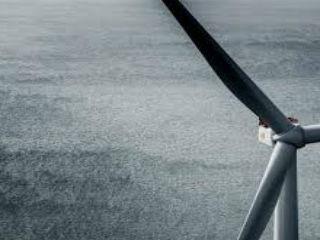Günther Oettinger, European Commissioner responsible for Energy said: "These forecasts show that Member States take renewable energy very seriously and are really dedicated to push their domestic production. It is an important milestone in the achievement of the goals set in the Europe 2020 Strategy. This is a very positive sign for the environment, as it will help us to cut CO2 emissions and at the same time enhance our energy security. It is also a very positive message for our economy and our companies. It is an incentive to invest in green technology and the production of renewable energy. Our task will be to help all Member States not only to reach the 20 per cent target but to go beyond".
The summary found that 10 out of 27 EU Member States are likely to exceed their national targets for renewable energy, with a further 12 set to meet their goals domestically. Only five Member States are currently expected not to meet their target with domestic sources only.
According to the Renewable Energy Directive (2009/28/EC), those Member States which consider that they cannot reach their targets with domestic resources alone, must either acquire transfers from other Member States or countries outside the EU. As the summary shows, this mechanism will only play a minor role. Only around 2 Mtoe of the total renewable energy needed in 2020, will be traded between Member States or third countries. In percentage terms this amounts to less than 1 per cent.
The priority will however remain to assist all Member States to reach the required target or, for those which are already close to the target, to go beyond it.
Background
The Renewable Energy Directive sets individual national targets according to Member States' capacity to increase their share of renewables. The Directive asked Member States to deliver a report, explaining whether they expect to achieve their targets from domestic renewable energy sources, whether they expect to exceed their targets and have a "surplus" to offer to other Member States through the use of the "cooperation mechanisms" contained in the Directive, or whether they expect to need to "import" renewable energy statistically using the cooperation mechanisms to meet their targets.
The Directive sets an overall EU target of 20% renewables of total energy consumption by 2020and individual binding national targets. Renewables include biofuels, biomass, wind, solar energy as well as hydro power. The renewable share in 2007 was 9%. Approximately 63% of this is derived from biomass and biowaste.
Renewable energy: forecasts show EU on track to meet 20% target
The EU will surpass its target to consume 20 per cent of its energy from renewable energy by 2020, according to national forecasts submitted to the European Commission. In its summary, the Commission finds that the EU will reach an overall share of 20,3 per cent renewables.


The summary found that 10 out of 27 EU Member States are likely to exceed their national targets for renewable energy, with a further 12 set to meet their goals domestically. Only five Member States are currently expected not to meet their target with domestic sources only.
MORE ON Climate change
- Climate change: European Commission sets out strategy to reinvigorate global action after Copenhagen
- ‘Taiwan wants to become party to Clean Development Mechanism’
- Greening the Brown Economy



 By: N. Peter Kramer
By: N. Peter Kramer
